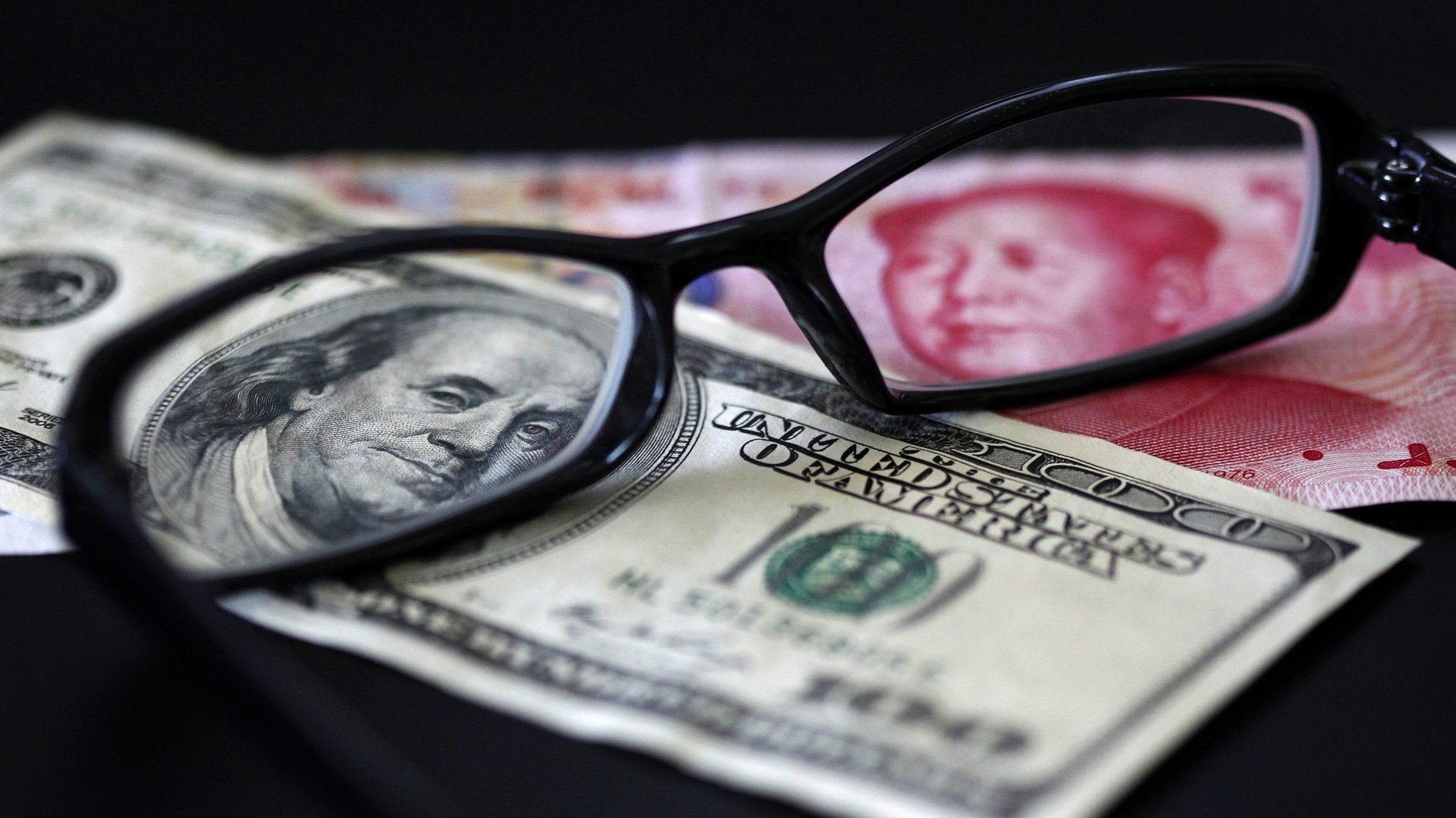China’s foreign exchange reserves rose for the first time since June
The Chinese government has recently been facing a trilemma of the tanking yuan, increased capital flight, and shrinking foreign exchange reserves. Rubbing salt into the wound is US president Donald Trump who never gives up calling Beijing a champion of currency manipulation.


The Chinese government has recently been facing a trilemma of the tanking yuan, increased capital flight, and shrinking foreign exchange reserves. Rubbing salt into the wound is US president Donald Trump who never gives up calling Beijing a champion of currency manipulation.
Here’s how China walks the tightrope: Cushion money outflows by not letting the yuan depreciate too much against the dollar, which appeases Trump’s concerns about yuan weakness that make Chinese exports cheaper and, in theory, steals American jobs. The downside: Your stockpile of foreign currency shrinks rapidly, as you swap dollars for yuan to prop up the Chinese currency.
While Chinese policymakers are widely believed to have used this strategy to defend the yuan, the trend of its reserve depletion reversed in February, to everyone’s surprise.
China’s foreign exchange reserves climbed back above the closely watched $3 trillion level in the past month, the Chinese central bank reported today (March 7). The $6.9 billion increase in February was the first uptick in China’s foreign currency holdings since last June, and defies analysts’ forecasts of a $2.9 billion fall.
In January, China’s foreign exchange reserves fell below the $3 trillion mark for the first time in nearly six years. Over the past two years, China has sold $1 trillion in foreign reserves to push up the yuan’s value.
What explains the surprising uptick in February? It could mean that Beijing’s tightening capital controls have begun to pay off. At the start of this year, Chinese regulators spelt out measures to make it harder for individuals to take money out of the country, including requiring extra documentation for buying foreign currency. In the meanwhile, the Chinese central bank has guided market interest rates higher, making it more expensive for Chinese banks to borrow yuan from each other.
“For now at least China’s central bank has engineered a period of calm,”said Tom Orlik, Bloomberg’s chief Asia economist, in a note. But he added that the expected Fed rate hikes will bring back pressure for yuan weakness this month.